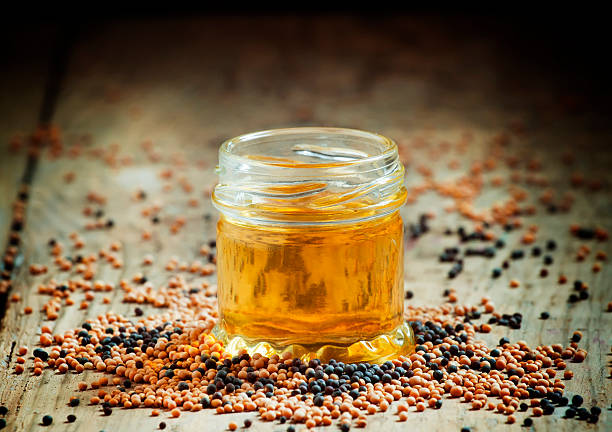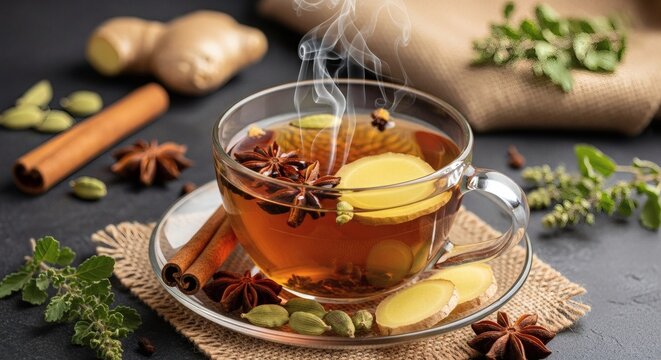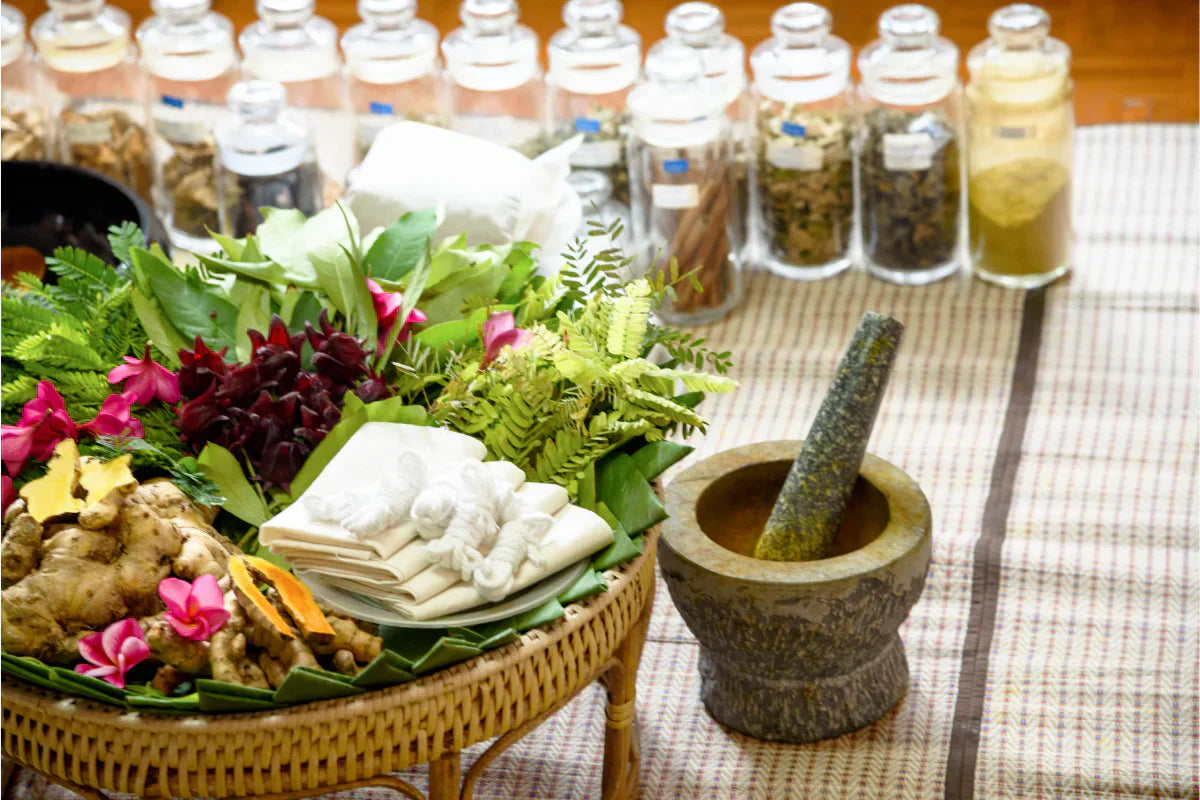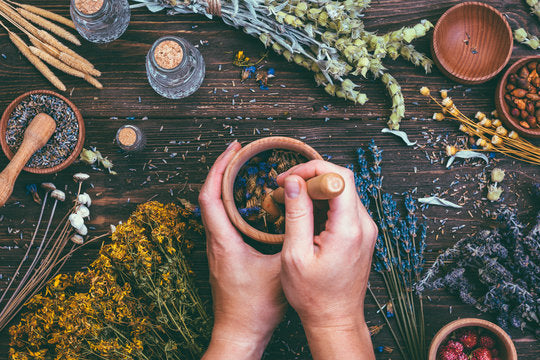Top 5 Ayurvedic Oral Care Tips for Winter

Understanding Ayurvedic Oral Care
Imagine a winter morning, the air crisp and cool, with a gentle warmth enveloping you as you sip a cup of herbal tea. In Ayurveda, this season requires special attention to our oral health, as the cold months can disrupt the balance of Vata and Kapha. Ayurvedic oral care is not just about keeping your teeth clean; it’s about nurturing the entire oral ecosystem, ensuring that your mouth remains a gateway to overall health and vitality.
Modern science also points out that winter colds are deeply drying and may exacerbate mouth and gum sensitivity. Ensuring moisture and balance in the oral cavity is, therefore, particularly critical in these times. Ayurveda recommends holistic care - not just aesthetic benefits but true doshic harmony between mind and body. Ayurvedic rituals align with the body’s natural rhythms and help us thrive even in harsh winters.
Ayurveda recommends holistic care, not just aesthetic benefits, but true doshic balance and harmony between mind and body. Its rituals align with the body’s natural rhythms and help us thrive even through harsh winters.
Special Oral Care for Winter: The Ayurvedic Viewpoint
Vata imbalance leads to dryness in the mouth, chapped lips, and enhanced sensitivity in the gums – all this makes the oral cavity prone to infection and inflammation. As the winter deepens, Kapha may become more assertive, causing mucus build-up, plaque formation, a slowing down of circulation, and bad breath.
Also, during this season, people tend to drink less water, eat more sweets and dairy and spend more time in cold, dry air. The cumulative impact of these factors disturbs agni (digestive fire), causing toxins or ama to accumulate within the system, which in turn manifests in a coated tongue, foul breath, and a dulling of taste.
In Ayurveda, the mouth (mukha) is the entry point into the digestive system and other vital organs; therefore, oral health is critical at all times, but particularly so during the winter when doshic imbalance – triggered by the changing weather – is most pronounced.
Understanding Ayurvedic Oral Care
Imagine a winter morning, the air crisp and cool, with a gentle warmth enveloping you as you sip a cup of herbal tea. In Ayurveda, this season requires special attention to our oral health, as the cold months can disrupt the balance of Vata and Kapha. Ayurvedic oral care is not just about keeping your teeth clean; it’s about nurturing the entire oral ecosystem, ensuring that your mouth remains a gateway to overall health and vitality.
Modern science also points out that winter colds are deeply drying and may exacerbate mouth and gum sensitivity. Ensuring moisture and balance in the oral cavity is, therefore, particularly critical in these times. Ayurveda recommends holistic care - not just aesthetic benefits but true doshic harmony between mind and body. Ayurvedic rituals align with the body’s natural rhythms and help us thrive even in harsh winters.
Ayurveda recommends holistic care, not just aesthetic benefits, but true doshic balance and harmony between mind and body. Its rituals align with the body’s natural rhythms and help us thrive even through harsh winters.
Here are 5 time-tested tips for oral care
1. Begin your day with oil pulling: One of Ayurveda’s most potent winter detox rituals, it involves swishing warm oil in your mouth and spitting it out. This helps eliminate toxins, lubricates oral tissues, strengthens the gums, and counters Vata dryness. Warm sesame oil is particularly effective in reducing bad breath, removing harmful bacteria, and preventing oral dryness while keeping the gums nourished.
Here’s how to practice oil pulling: Swish 1 tablespoon of warm sesame or coconut oil in your mouth for 3-5 minutes every morning before brushing. Spit it out (never swallow) and rinse with warm water. This simple winter ritual enhances gum health, clarity of voice, and overall oral freshness.
Read our blog on oil pulling and Ayurvedic toothpaste —>
2. Shift to a reputed brand of herbal toothpaste: Stop using chemical-based commercial toothpastes. Most commercial toothpastes contain foaming agents and synthetic additives that strip the mouth of natural oils, worsen winter dryness and sensitivity, and may even lead to mouth ulcers.
Ayurveda recommends brushing with toothpaste enriched with Neem, Clove, Triphala, Peppermint, Mulethi, or Ginger – herbs that help balance the oral microbiome, strengthen the gums, and reduce bleeding without aggravating Vata or Pitta.
Mahararishi Ayurveda’s Ayurdent toothpaste supports healthy gums, reduces plaque, and maintains long-lasting freshness, and has no harsh chemicals. This is a year-round product to maintain oral health.
3. Clean your tongue every morning: This practice is critical during the winter when metabolism is naturally low, leading to a higher ama build-up. Use a tongue scraper to remove the white or yellow coating – toxins that gather on the tongue – to improve taste, prevent bad breath, and stimulate internal organs connected to the reflex points on the tongue. Use a copper tongue cleaner as the metal is antibacterial and helps balance Kapha and ama.
4. Massage your gums with herbal oils: Sesame oil or mustard oil with a pinch of salt, turmeric, or gumcare oil is recommended for gum massage. This helps nourish the roots of the teeth and promotes healthy circulation, prevents gum recession, bleeding, and dryness – all common occurrences in the winter. This is a step that is particularly recommended in Ayurveda and is missing in general oral care routines.
Here’s how to massage gums: After brushing, gently massage 2-3 drops of warm oil on the gums. This helps strengthen roots, eases jaw stiffness, and calms aggravated Vata, leaving the mouth warm, moist, and revitalised.
5. Follow a diet that supports oral health: Ayurveda states that oral health mirrors gut health. When digestion is weak, ama accumulates, manifesting in bad breath, a coated tongue, gum inflammation, and dull taste. Winter digestion is particularly affected by heavy foods and low fluid intake.
Eat warm, light, hydrating meals and avoid binging on sweets, cold drinks, and fried foods that increase Kapha and ama. Spices such as Saunf, Dalchini, Ginger, and Turmeric, as well as herbal formulations such as Triphala, help in promoting digestion and reducing inflammation. Half a teaspoon of Triphala churna with warm water, had after dinner, detoxifies the gut and supports oral and digestive health.
Your diet must include ample hydration to combat the dry weather. The cool weather will dull thirst, so you may consume less water, which can lead to a dry mouth, cracks in the oral cavity, and bacterial growth. Drink warm water infused with Cumin, Turmeric, and Fennel, and sip herbal teas – 3-4 cups a day is recommended.
Lifestyle Habits & Oral Health
Specific habits, too, may trigger oral health problems. Here are a few points to keep in mind:
1. Avoid breathing through the mouth – it dries the mouth and aggravates Vata.
2. Try to improve stress management. Clenching your jaw from high emotional strain or any form of high anxiety upsets Prana Vata, which governs gums and teeth.
3. Nasal hygiene is closely linked to oral care: Saline rinses are helpful; also try to practice Nasya, an Ayurvedic therapy where a few drops of medicated oil (use Anu Tail, a special herbal formulation best for this purpose) are administered through the nose to cleanse, moisturise, and nourish the head and neck regions.
4. Make sure you get adequate sleep to support ojas or internal vitality, which is critical to strengthen oral tissues and boost immunity.
Conclusion
Winter oral care is rooted in balancing Vata and Kapha. By adopting Ayurvedic winter rituals, oil pulling, herbal brushing, gum massage, tongue cleaning, and warm hydration, you can prevent dryness, sensitivity, and infections naturally. With mindful daily care, your oral cavity stays fresh, nourished, and in harmony throughout the cold months.
Complement these practices with Ayurvedic solutions like Ayurdent Herbal Toothpaste, gum-care oils, and copper tongue cleaners to complete your winter oral care ritual.
Explore Ayurvedic Oral Wellness for this winter
FAQs
1. Can oil pulling replace toothpaste?
No. Oil pulling removes toxins and bacteria, but it does not mechanically clean teeth. It should always be followed by brushing with a herbal toothpaste for complete oral hygiene.
2. What is the best Ayurvedic toothpaste for sensitive teeth?
Herbal formulations containing Clove, Neem, Mulethi, Ginger, and Triphala are ideal. They soothe sensitivity, strengthen enamel, and maintain doshic balance without harsh chemicals.
3. How often should I clean my tongue?
Daily, preferably every morning after brushing. Tongue cleaning prevents Ama buildup, supports digestion, reduces bad breath, and enhances taste.
Popular Posts

Rheumatoid Arthritis in Ayurveda: Can Detox and Digestion Support Joint Health?
23 Jan, 2026Rheumatoid arthritis (RA) is a widely known joint condition, but did you know that Ayurveda trace...
Read more
Natural Ayurvedic Detox: Gentle Home Remedies
23 Jan, 2026What does natural detox really mean in Ayurveda? Essentially, this practice refers to the elimina...
Read more
Winter Weight Gain and Brain Fog: Ayurveda Explains Why
22 Jan, 2026What’s the trigger for winter weight gain? Why do we often experience brain fog, feel dull and he...
Read more




 Popular Read
Popular Read

















































